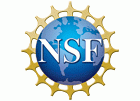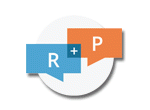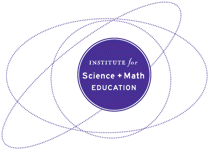How can formative assessment support culturally responsive argumentation in a classroom community?

- Teachers need to understand and build on the cultural resources (knowledge, interests, experiences) students bring to the practice of scientific argumentation to increase engagement and inclusion, especially students from non-dominant communities.
- District Staff & PD Providers should support teachers in integrating formative assessment with argumentation to promote inclusive science and engineering learning.
- School Leaders should promote and resource the use of different forms of classroom-based formative assessment in the learning of scientific practices.
What Is The Issue?
Argumentation has long been seen as an important practice in science and thus in science education. Formative assessment can be used to help students value the contributions and perspectives of others as they engage in argumentation to make sense of natural phenomena. Educators can use these strategies to help foster argumentation that is culturally responsive, meaning it draws from and respects students’ cultural resources, backgrounds, and personal experiences. Culturally responsive formative assessment happens within a community of learners where the teacher has cultivated explicit norms for increasing student-centered discourse, making decisions for their own purposes through democratic processes, and using clear guidelines for maintaining mutual respect.
Authors:
BY DEB MORRISON AND ANGELA HAYDEL DEBARGER - MARCH 2016
Reflection Questions
- How do you engage students in constructing arguments from evidence? What cultural resources do you draw upon?
- What kinds of evidence are considered valuable from a scientific perspective and from your students’ perspectives?
- What experiences do your students need to become more effective at discussing and critiquing each other’s arguments? What kind of classroom norms and discourse strategies would help?
Things to Consider
In order to leverage the personal and cultural resources all students bring to scientific argumentation, three components of formative assessment can help students engage in this practice:
- Eliciting Argumentation. As you select phenomena as the focus of lessons, try to choose ones that offer multiple entry points for students to share their initial ideas and draw from interest-driven student investigations. In constructing preliminary arguments, prior experiences may be a strong influence on students’ perspectives. Explore these experiences—as well as family, community, and broader cultural connections—as resources and sources of authority.
- Interpreting the Quality of Argumentation. After students develop initial evidence-based arguments, students and teachers should actively identify the strengths and weaknesses of claims, evidence, and reasoning in arguments. Developing students’ practice of argumentation also requires attending to how students are engaged in making sense of each other’s ideas: Are students productively critiquing each others’ arguments and using evidence to do so?
- Responding to and Improving Argumentation Instruction. Argumentation should include classroom conversations about what different communities value as strong evidence (including, but not limited to, different groups within the scientific community). These are opportunities to discuss why students find different sources of evidence more or less compelling. It can be useful to have explicit conversations about controversies and social issues that influence debates about scientific ideas. Students can be encouraged to revise their arguments to strengthen the scientific relevance of them.
Attending to Equity
- Building on the ideas, interests, and experiences of students during argumentation helps to ensure that they develop strong identities as science learners and will be able to evaluate scientific information as active citizens.
- The way in which teachers organize classroom talk to improve the participation of all students is important for supporting science identity formation. Arranging for multiple modes of expression can increase ways that students communicate their arguments.
- Students should be apprenticed into science discourse. This process can be challenging for some. ELL students are bridging language differences to learn science discourse. Teachers can support both science and language for ELLs to ensure all students have a strong conceptual understanding.
Recommended Actions You Can Take
- Try moving arguments from private to public spaces in the classroom, asking students to use argumentation in small groups or whole class discussion rather than just individual work. Give students time to develop their individual ideas and then share them publicly so they can see how arguments evolve with new evidence and peer input.
- Learn about accountable talk, ambitious science tools & discourse.
- Read about the argumentation practice and how students are intended to engage in the practice across grade bands. Explore how the argumentation practice can help students refine alternative conceptions and partial understandings.
- Collaborate with educators and community members to develop and adapt formative assessments focused on argumentation for different science and engineering disciplinary topics.
ALSO SEE STEM TEACHING TOOLS
STEM Teaching Tools content copyright 2014-22 UW Institute for Science + Math Education. All rights reserved.
This site is primarily funded by the National Science Foundation (NSF) through Award #1920249 (previously through Awards #1238253 and #1854059). Opinions expressed are not those of any funding agency.
Work is licensed under a Creative Commons Attribution-ShareAlike 4.0 Unported License. Others may adapt with attribution. Funded by the National Science Foundation (NSF). Opinions expressed are not those of any funding agency.


 Email Feedback
Email Feedback


